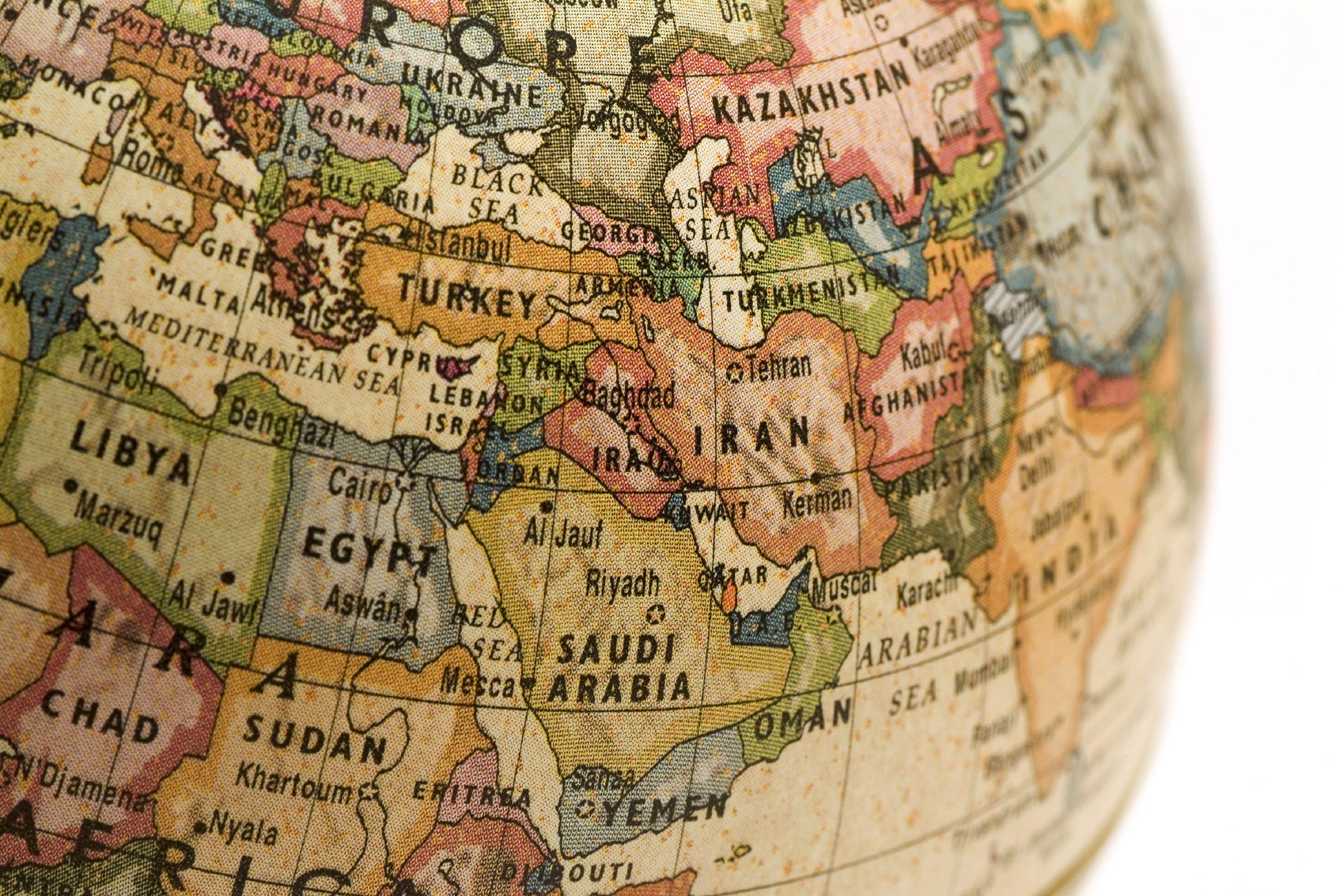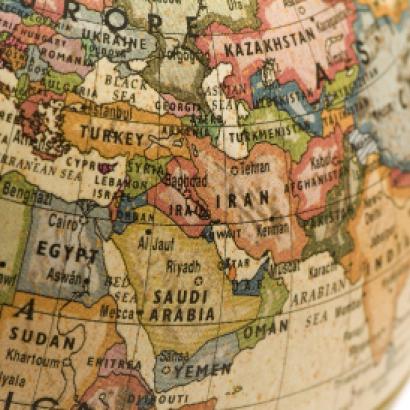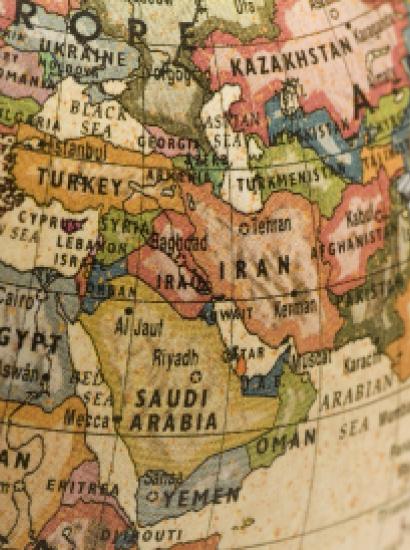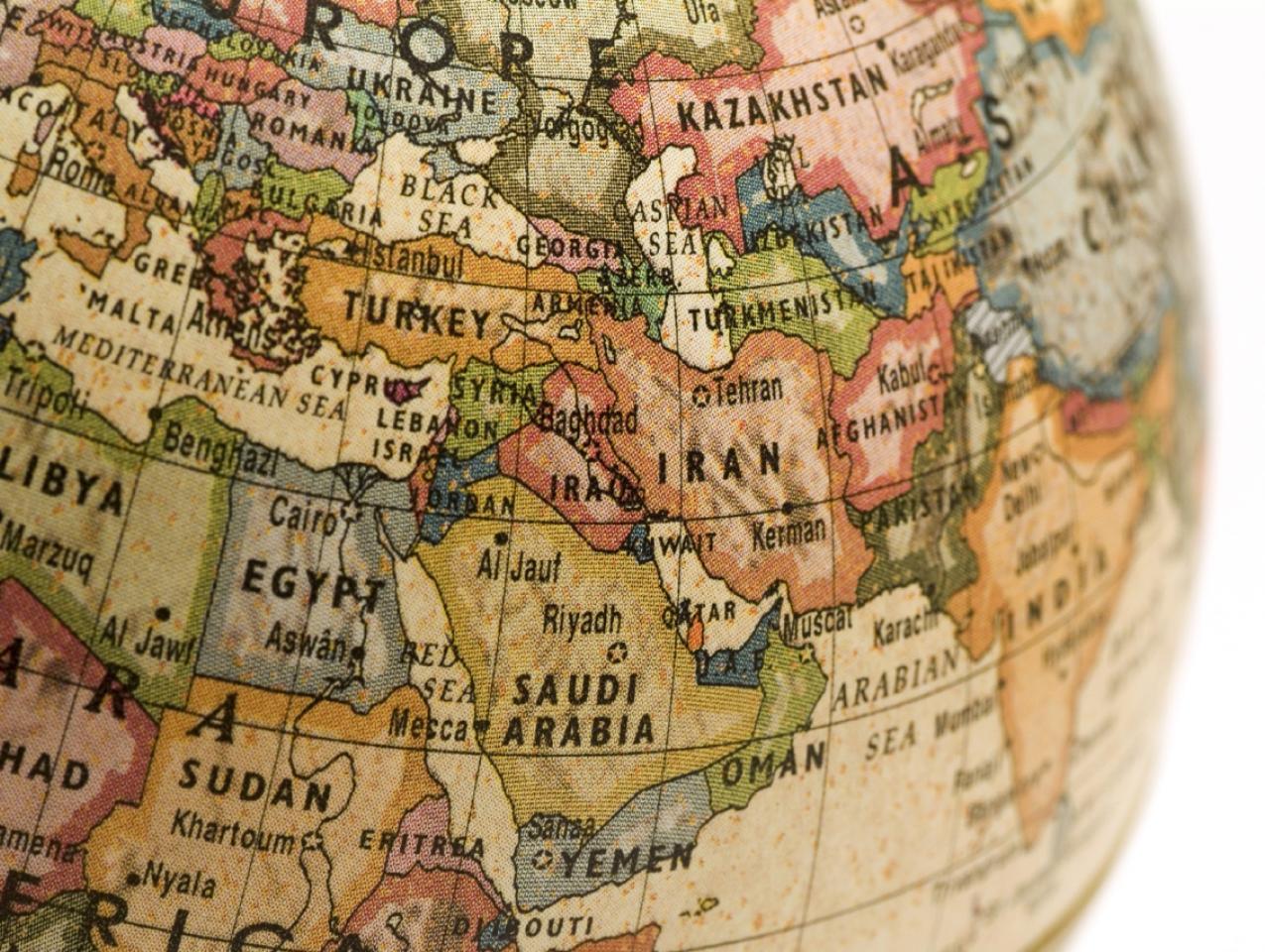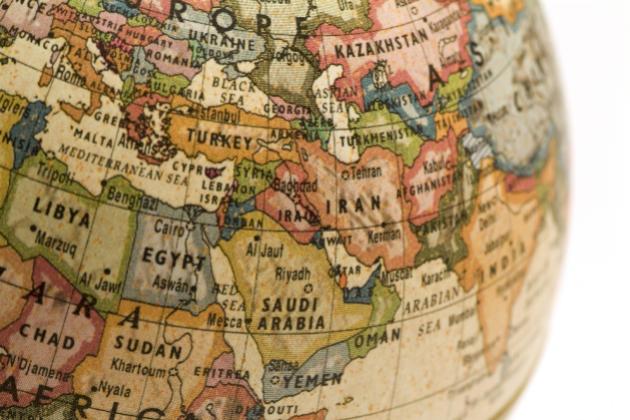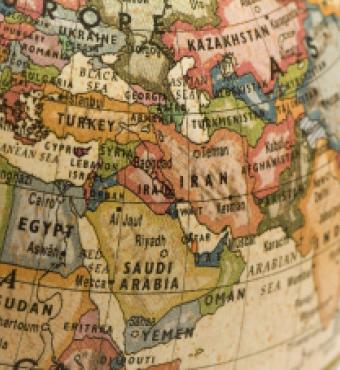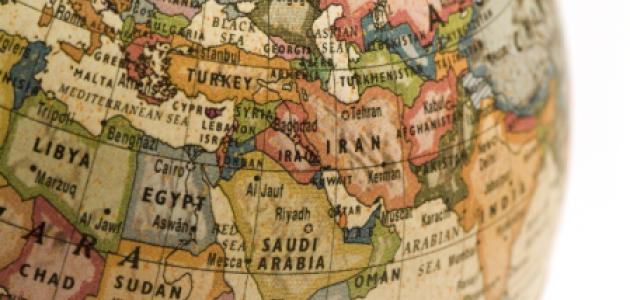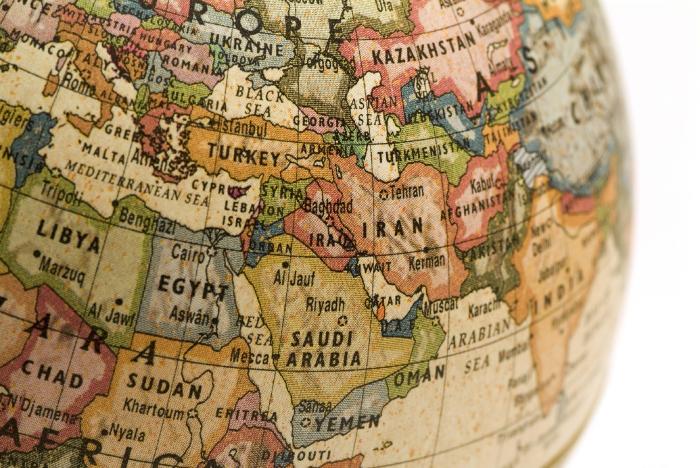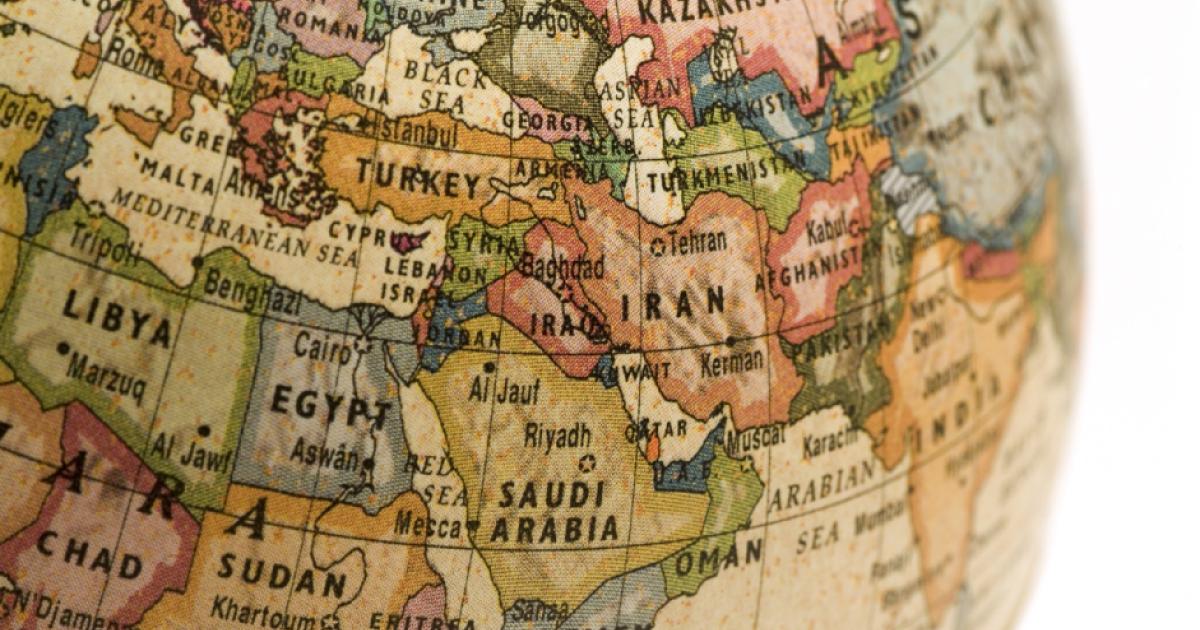Not long ago the Obama administration tried to explain Iranian President Hassan Rouhani’s budgetary priorities. The White House’s assertion that the Islamic Republic’s future spending would overwhelmingly be used for domestic, non-military needs was a response to the bipartisan fear that the clerical regime might use some of its new, post-sanctions cash—likely between $100 and $150 billion—on its expeditionary efforts in Syria and Iraq and its not-so-covert arms program to the Shi’ite Houthi rebels in Yemen. Although Barack Obama advertised the Joint Comprehensive Plan of Action primarily as a nuclear deal, the president and his secretary of state often suggested that the accord could usher in a better age for the Middle East and U.S.–Iranian relations.
The White House’s hopeful assessment would now appear to be moot since Tehran has decided to put much more money and manpower into Syria before the mullahs have seen a single American or European sanction officially lifted. The clerical regime clearly plans to spend billions in Syria maintaining an ever-larger contingent of Revolutionary Guards (the force is probably now a few thousand strong) in both combat and support positions. Iranian financial aid to Bashar al-Assad’s regime may even exceed the monies expended for Iranian military personnel and equipment. These funds may not be great by American standards, but several billion dollars in Iranian hands goes a lot further than it would if expensed by the Pentagon. Dollar for dollar, it’s an expression of far greater intent and will.
Unimplemented, the nuclear accord has already amplified the Islamic Republic’s pre-agreement regional behavior; it has also helped to neuter America’s response to Iranian imperialism. If the nuclear accord remains intact, odds are good that both reactions—Iranian expansionism and American restraint—will intensify further. Tehran clearly believes that the Obama administration’s determination to separate the atomic talks from the mullahs’ regional behavior is a green light for the clerical regime to advance its priorities in the Middle East. Although the White House maintains that it has full discretion within the JCPOA to push back against Iranian adventurism, common sense says otherwise. Tehran has made it crystal clear that it would consider any future sanctions, raised by either the United States or the European Union for any reason, as a violation of the nuclear accord.
The JCPOA was obviously more important to President Obama than the clerical regime’s domestic or foreign affairs or delegitimizing such behavior would have been included in the negotiations or have halted the diplomatic effort. Although Mr. Obama attempted to combine harsh words for Assad and a (still-born) plan to arm moderate Syrian Sunni rebels with his nuclear negotiations, de facto the president accepted Iranian aide to Damascus, which has been indispensable to the slaughter of 250,000-plus Syrians and the millions made homeless. The same applies in Iraq, where the clerical regime has fueled sectarian violence, destroying the general sense of safety left by the American surge in 2007 and 2008. Without Iranian aid to Assad’s savagery and Iraqi Prime Minister Nuri al-Maliki’s sectarian oppression, the Islamic State may well never have come into being.
Mr. Obama’s obsession with the nuclear deal looks past prior acts of aggression by the Iranian regime against the United States, including its arduous efforts to plan lethal operations against American personnel in Iraq and the its aiding, harboring, and release of active members of al-Qa’ida. The White House downplayed Tehran’s current support to terrorist groups aimed at the Israelis, principally Hezbollah, Hamas, and the Palestine Islamic Jihad. A nuclear achievement, and the recurring hope for better official relations between Washington and Tehran, led the president to ignore the clerical regime’s crushing of democratic dissent, which in 2009 put around 3 million people onto the streets of the capital, and the jailing and torturing of American citizens, including a former FBI agent and the Washington Post’s Jason Rezaian.
If President Obama has tolerated all of this Iranian behavior for his nuclear deal, why wouldn’t he tolerate much worse to keep it going?
An obvious truth: the nuclear agreement has become the centerpiece of Mr. Obama’s intention to reduce America’s presence and responsibilities in the Middle East. Without it, the president could have been confronting a stark choice—preventive military strikes or an immediate surrender to the Islamic Republic’s nuclearization. With the deal, whose restrictions on the clerical regime’s atomic program start to rapidly fade after year eight, the president has bought time—a decent interval—for America’s continuing withdrawal from the region. The Iranian regime isn’t blind. The only question for it remains whether President Obama’s arrangement—the nuclear deal and American retreat—will become the policy of his successor.
If a new American president were to break with Mr. Obama’s plans, he’d probably have to do it within the first year in office or the inertia of the accord will guarantee Mr. Obama’s policies become the new standard for the United States. For those in Washington who support the deal, but want to counter Iran regionally, they are in a perverse bind: to counter the clerical regime, they must risk the accord. The two are in practice incompatible. It’s difficult to imagine a scenario where the United States can maintain this agreement, let alone, as Republican critics envision, renegotiate a new one that actually dismantles nuclear infrastructure while ramping up sanctions against the clerical regime’s imperial designs, support for terrorism, and human rights abuses. The odds that Khamenei will walk away after new American sanctions are instituted and recommence installing IR-2m centrifuges are high.
Post-Obama Washington will have to decide whether it really intends to humble and contain the clerical regime. As it stands now, the United States is confronting perhaps the worst of all possible scenarios. The Islamic Republic is moving to become the dominant Middle Eastern power by fueling and manipulating the Shi’ite-Sunni divide within Islam, and the United States and the European Union are subsidizing this behavior. The Islamic State will continue to grow, fed by the sectarian clash. (Russia and Iran are unlikely to invest enough manpower and materiel to destroy the Islamic State; Sunni jihadists increase the Syrian Alawites’ and the Iraqi Shi’ite community’s dependency on Tehran.) Saudi Arabia, perhaps the United Arab Emirates, and probably Turkey will view the JCPOA for what it is: at best a stopgap measure that allows them eight to ten years to obtain their own nuclear arsenal. The United States might be able to derail this colossal train wreck, but it’s inconceivable that it will be able to do so unless it’s willing to abandon the JCPOA and confront Iran, and Russia, too, in the Levant. In his famous Cairo address in 2009, Mr. Obama wanted a new dialogue between Americans and the Muslim world, based primarily on a lighter American footprint in the region and a more attentive ear to Muslim sensitivities. As always in the Middle East, one needs to be careful what one wishes for.
Reuel Marc Gerecht is a senior fellow at the Foundation for Defense of Democracies.







